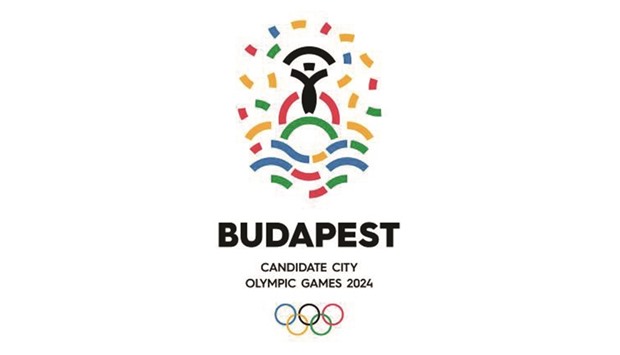There are three cities bidding to host the Olympic Games in 2024. Los Angeles, Paris and Budapest will spend the next ten months convincing the International Olympic Committee (IOC) to vote for their city.
At a glance, Budapest may be considered as the outsider. A David vs Goliath clash, with LA and Paris coming under the “mega city” status. LA and Paris have hosted the Games four times between them, whilst Budapest has yet to hold the Olympics.
However, Budapest more than belongs in the 2024 bid race and there are a number of reasons why the city can win the campaign.
In 2014, the IOC passed Olympic Agenda 2020, a “strategic roadmap for the future of the Olympic Movement”. The goal of Agenda 2020 was to ensure the uniqueness of the Olympic Games remained, whilst the position of sport in society was strengthened.
One area addressed in Agenda 2020 was the bidding procedure of future Games, which encouraged candidate cities to present a project that would fit their long-term plans.
Budapest 2024 is a direct response to Agenda 2020. The 2024 bid is an instrumental part of Budapest’s overall city and nation-wide development programme.
The city of Budapest is already in the midst of an extensive programme of transformational infrastructure projects that have have provided Budapest with the venues and facilities to deliver the Olympic Games, and these projects are aligned with the Olympic model of sustainability and accessibility.
The Olympic Games in Budapest in 2024 will also transform the city and nation and regenerate one of the poorest parts of Budapest, providing a lasting legacy of new jobs and social change, along with new facilities and momentum for Olympic sport in Budapest and in surrounding Central European regions.
Fiscal responsibility is also at the heart of Agenda 2020 and Budapest 2024, and again, Budapest 2024 can tick this box and prove that they belong in this race. One key point of the bid is to optimise and utilise existing high quality venues that have hosted major international events, thereby significantly minimising the costs of the Olympic Games — only 3 additional venues would be needed for the Budapest 2024 Olympic Games.
In a time when legacy of an Olympic Games is vital to the IOC, Budapest stands out as a credible option for lasting improvements to the city and nation — and for sport — as a whole. There will be no white elephants in Budapest after 2024, just first class stadiums and sporting facilities for citizens and international sports federations and major event organisers to use.
Budapest 2024 will also be open to every person in Hungary, making the bid distinctive from others. Plans are in place to ensure that 90 percent of the population in Hungary will be just 90 minutes away from an Olympic event.
This will be made possible with the move away from the traditional model of a Host City and to instead have five nearby support cities that are easily accessible from the capital.
On top of this, the Hungarian public are behind the Olympic Games. Hungary has a proud Olympic history and sits eighth in the all-time medal table.
Hungary treats their Olympians as national heroes, with the likes of ?ron Szil?gyi and Katinka Hossz? returning from Rio 2016 as icons and role models after their gold medal hauls.
Budapest 2024 will therefore not suffer from empty seats, as the whole country will be behind the athletes and behind the Games.
This will create an extraordinary Games atmosphere that will fill the city of Budapest and the nation with Olympic festivals and celebrations that will transform the city and the Olympic Games into the world’s biggest outdoor festival.
Whilst Los Angeles has Long Beach and Paris has the Eiffel Tower, Budapest is full of stunning World Heritage scenery and backdrops. From the Danube River, which will stage activities on boats and the islands, to Buda Castle and Heroes’ Square, Budapest has history and character on every corner.
Supporting the individuality of the city, is the compact nature of Budapest. Two zones with seven clusters have been planned for the Games. They will all be within a ten km radius of the Olympic Village and a six km radius of the city centre. Athletes and spectators alike will be able to access their events with ease, whilst the Games will feel like a truly city-wide event.
Budapest also belongs in the bidding campaign because of the events they will host as 2024 approaches. The FINA World Aquatics Championship 2017, the European Youth Olympic Festival 2017 and the Table Tennis World Championships 2019 are just some examples of the major sports events Budapest will host. This will provide perfect practise for hosting the Games in 2024.
The question of whether Budapest has a place in the 2024 Olympic bid race is therefore clear to see. If Agenda 2020 is to become a reform that is realised, Budapest 2024 will be a part of the process until decision day.
If the IOC want a unique Games with a lasting legacy, Budapest 2024 will go the distance. Budapest more than belongs in the race.

